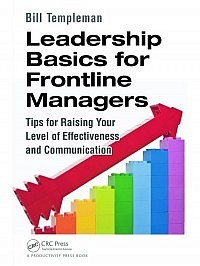Bill Templeman is a writer, instructor, speaker, program designer, and coach with 20 years of experience working with corporate, public sector and nonprofit clients.
He has a strong background in experiential education (action learning), training program design, and process facilitation. He holds a B.A. in psychology from Concordia University in Montreal and an M.A. in English from the University of Toronto.
Bill has worked with clients across Canada and the United States. He has written, designed, and delivered a wide range of training programs to employee and management groups, including team effectiveness, leadership development, managing change, career transition, sales/client service, and coaching.
Prior to starting his own business in 1993, Bill worked for five years as an internal management development consultant at Royal Trust in Toronto. He currently runs his own consulting practice in training, coaching, and business communication. In addition to his consulting and writing, he also delivers communications and career search courses at Fleming College in Peterborough.
Bill also works with clients as a career counselor for Lee Hecht Harrison throughout eastern Ontario.
Bill is a former wilderness program course director and has an extensive background in experiential team building and leadership development with both employee and management teams. His writing on business, politics, and education has appeared in national magazines, journals, websites, and newspapers.
You can order Bill’s book online (paperback and ebook versions are available) from CRC Press.
An excerpt from Leadership Basics for Frontline Managers: Tips for Raising Your Level of Effectiveness and Communication by Bill Templeman (Productivity Press, 2014)

Any organization that is dominated by extreme levels of organizational politics can become toxic and fail. When I worked for a company in the financial industry, I was hyper-concerned about conforming and getting ahead. I wore the right clothes, worked the right amount of hours, contributed during meetings in appropriate ways and in general did my best to fit in, to be highly valued and to get promoted. Or so I thought. When my firm began to take imprudent business risks, the rumor mill ran wild. I remember being told by a colleague that someone in accounting had said, “You just wouldn’t believe what the executive team is telling us to do with the books!” The numbers were being manipulated to hide the true picture from shareholders, yet very few of us were willing to become whistle blowers. Very few of us dared to challenge the directions that were coming down from the executive suite. The company’s share price gradually slid from over $20 to below 50 cents. Terminations became the order of the day. Eventually the company was sold.
The corrosive fear that undermines organizational success has a long history. Writing shortly after the end of World War II, Admiral John Godfrey, the former Director of Britain’s Naval Intelligence Division, in analyzing ‘Operation Mincemeat’, a highly successful wartime deception conducted by British agents, identified two major weaknesses of the Nazi’s espionage establishment: ‘wishfulness’ and ‘yesmanship’. These words are strictly the good admiral’s concoctions. Yet wishfulness and yesmanship have changed the course of history. And they are still with us today, every day of the week, at work and at home.
As definitions for wishfulness and yesmanship do not appear in any dictionary, I’ll use my own. Wishfulness is that tendency among individuals and organizations to believe information that supports their own view of reality while simultaneously rejecting all contradictory information. Godfrey believed that the Nazi high command, when presented with two pieces of contradictory information, was “inclined to believe the one that fit in best with their own previously formed conceptions”.
Yesmanship is the tendency of those with less positional power to agree with those who have greater power, mainly out of fear. Yesmanship feeds on fear of authority; the greater the fear, the stronger the tendency toward blind yesmanship. Yesmanship is an enabling behavior for wishfulness. Wishfulness, particularly in organizations in which there are dire consequences for insubordination, can give rise to deadly levels of yesmanship.
Milder forms of yesmanship occasionally take a seat at almost every corporate or government boardroom. Fearful employees learn instinctively to deliver the news they believe their harried bosses want to hear. Wishing to avoid an argument, employees will spin information for each other by hiding in yesmanship. “Don’t make waves”. “Tell her what she wants to hear and you’ll be fine”.
In the Nazi military command hierarchy that Godfrey analyzed, lower ranked personnel would deliberately distort information in order to crawl higher in Hitler’s estimation. Yesmanship became integrated into strategic decision making at the highest levels of the Third Reich. In this rigidly hierarchical military structure, no one dared say “no” to the powers above. Wishfulness and yesmanship ultimately destroyed the Nazi war machine.
What power does wishfulness and yesmanship have in your organization today? Who could give you an honest answer?
We all know what organizational politics can feel like. We all know the almost imperceptible sense of caution, of carefulness, of not wanting to communicate the wrong message. We all know the importance of maintaining a professional image, or being seen to be a worthwhile contributor, of being perceived as someone who is ‘onside’ with current directions and plans. All of which is not to say that by being careful, considerate, conscious of one’s image and messages we are somehow sabotaging our careers. Far from it. But it is a question of degree. How careful do we need to be? We all know the cost of not being careful enough. But do we understand the cost of being too careful?
The costs of allowing these forms of organizational cowardice to become the norm could be immense. What can we do to ensure that wishfulness and yesmanship do not distort our business planning and operational decision-making? How can we encourage people to speak their truth? How can we build an organizational culture of high integrity? Build an organization based on trust and respect, not wishfulness and yesmanship. Trust and respect build organizational effectiveness.
- Everyone, from the CEO on down must, to paraphrase Ghandi, be the change they want to see in their colleagues. If you want the truth, you must speak the truth and be the truth
- Encourage debate and dialogue. Welcome challenges, welcome questions, welcome demands for explanations and above all, welcome alternative ideas that conflict with your own assumptions
- If you are a leader, make a point of hiring people who are likely to disagree with you on business issues. Conflict can yield creative resolutions that would never see the light of day had passive politeness been the name of the game
- Instead of arguing with dissenters, ask for explanations of their thinking. “How did you come to that conclusion? Please walk me through your thinking process.” Listen first before fighting back
- Treat everyone according to a set of explicit and worthwhile values. This is not about posting flowery vision statements everywhere. This about your behavior, or more accurately, how you treat people, all people, every day



























